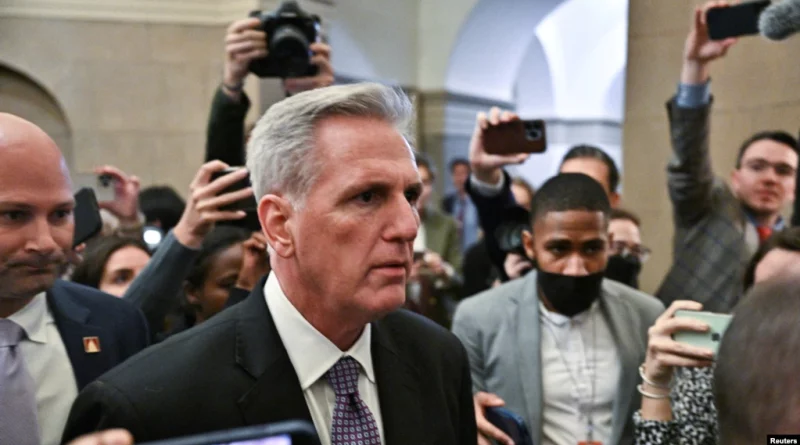McCarthy offered opponents a deal to get elected speaker
McCarthy offered opponents a deal to get elected speaker
The contours of the deal that will see Republican leader Kevin McCarthy in the lower house of Congress seemingly get elected Speaker of the House after three grueling days and 11 failed votes in a political mess unseen in a century that left the Republican Party leadership in disarray and once again exposed the fragility of American democracy.
The House will return to the polls Friday afternoon, when Republicans will once again try to elect a new House speaker – this time against the backdrop of today’s commemoration of the second anniversary of the Jan. 6, 2021 attack on the Capitol. The storming of the Capitol by a mob of supporters of then-President Donald Trump, who tried to prevent Congress from confirming his defeat in the 2020 election, rocked the country.
McCarthy cannot yet expect to get the votes he needs to get elected, but there are now signs of a deal being prepared, which at least some of the Republican leader’s opponents in the House, who had previously denied him support, are willing to make.
“We’ve made some progress,” McCarthy said late Thursday night in response to questions about what the party leadership will do next.
The agreement McCarthy is willing to make with his conservative Freedom Caucus opponents concerns changes to House Rules of Order, which they have been pushing for months. These changes would reduce the speaker’s powers and allow rank-and-file lawmakers to have more influence over the drafting and passage of legislation.
Even if McCarthy can get the necessary votes, he will not become the all-powerful leader of the House of Representatives, losing some of his powers. He would be in constant danger of being removed from office if his opponents so desired. Even so, McCarthy has a fighting chance of emerging victorious from one of the most bitter battles for the House seat in the history of the nation.
At the heart of the new deal is the reinstatement of an earlier provision in the bylaws that allows even one congressman to make a motion to vacate the speaker’s seat and schedule a new vote. McCarthy initially opposed this provision, proposing to increase the number of votes required to five.
Other victories for McCarthy’s opponents include increasing the number of seats on the Rules Committee, setting a minimum time threshold for publishing the text of bills to be voted on in the House – no less than 72 hours – and a promise to try a constitutional amendment that would limit the number of terms legislators could serve in the House and Senate.
On Thursday night, McCarthy again failed to get the 218 congressional votes he needed to win in the 11th round of voting. Thus, the record for the number of rounds of voting for the speaker of the House of Representatives, set 100 years ago, was broken.
The longest struggle for the Speaker’s gavel in U.S. history began in late 1855 and dragged on for two months amid debates over the abolition of slavery on the eve of the Civil War.
